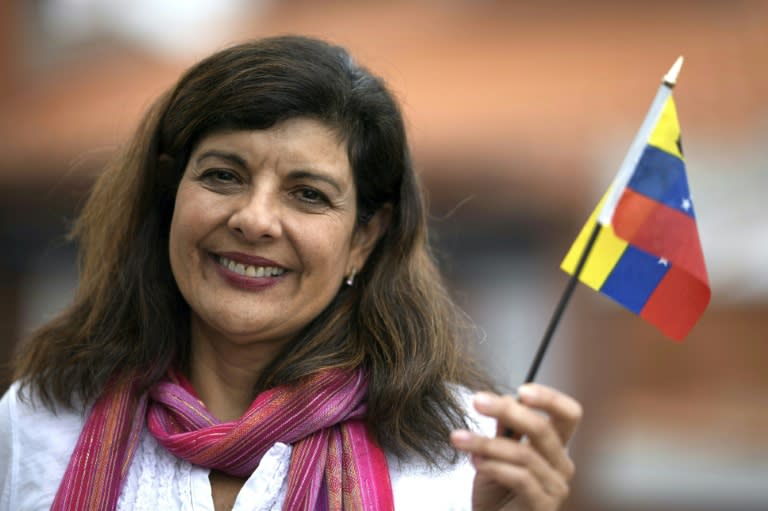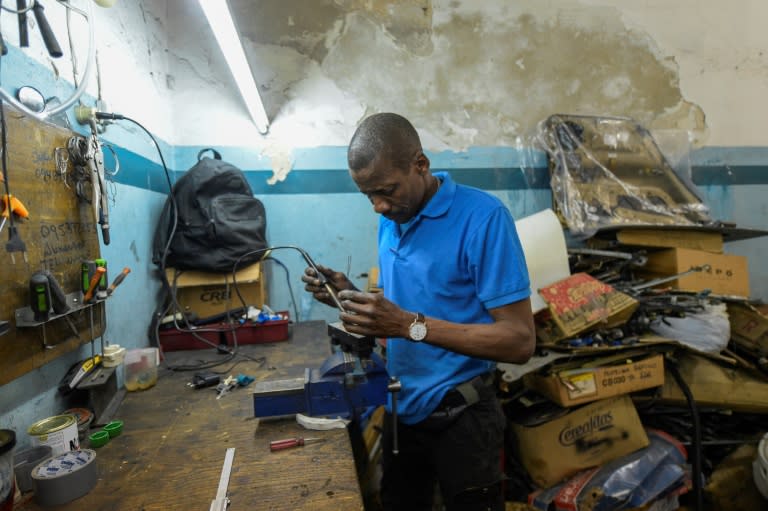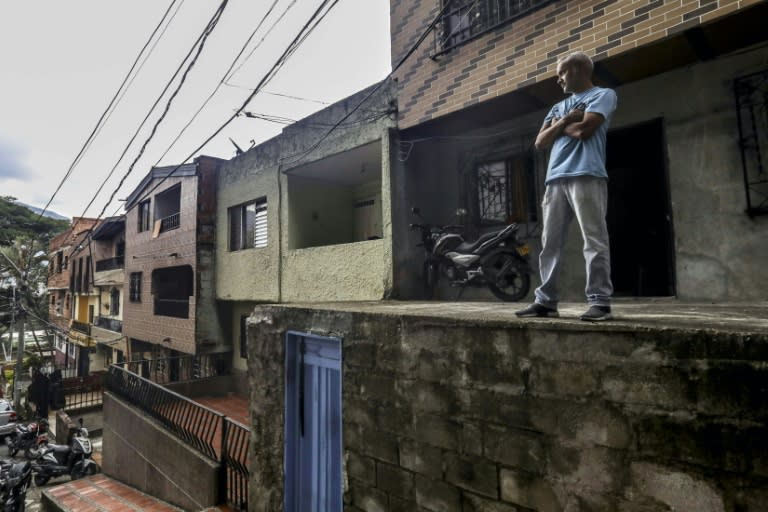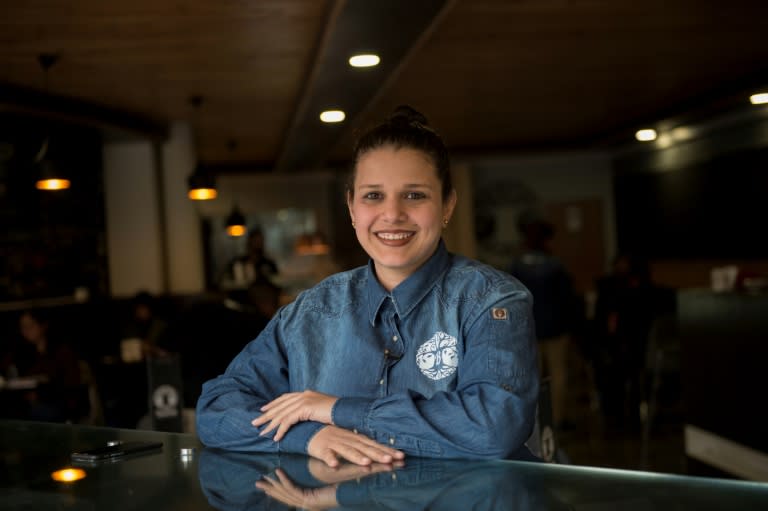'Absolutely nothing': Venezuelan exiles expect no change after election
From Madrid to Miami and from Montevideo to Santiago, hundreds of thousands of Venezuelans live in exile, having fled their country as it descended into economic ruin over the past few years. From very diverse backgrounds, many say they have no expectation that Sunday's controversial election, in which socialist Nicolas Maduro is seeking another six-year term, will change anything for the better. Here are the views of five of them: - 'Refugee' in Miami - Rafael Rangel, a 39-year-old artist, emigrated to Miami in 2014. After studying at the Pratt Institute in New York, he began his career in Caracas before the country's economic collapse. "My life has once again turned around 180 degrees as it's a new start," he said in his downtown workshop. He feels like "a type of refugee", Rangel says as he puts together a new artwork using glass and polystyrene, in the style of the late Brazilian sculptor Sergio de Camargo. On Sunday, "absolutely nothing is going to happen, I don't have any expectations." When asked what it would take for him to return to Venezuela, he doesn't hesitate: "We need to rebuild the country from scratch." - In Montevideo, to not 'die from hunger' - Hugo Alexander, a 54-year-old mechanic, is doing some soldering in his workplace in the center of the Uruguayan capital of Montevideo, where he arrived en 2016 to join two of his three children. "It wasn't through hunger, or from a lack of money or a job, no. It was because of insecurity and shortages, of all types," he says. "There are Latin American countries where Venezuelans are victims of xenophobia. We are emigrating en masse, it's normal, given the situation that we are going through. We can't accept that Maduro will leave us to die from hunger." He says there will be "cheating" in the election. "People know it, that's why I will not go and vote." - A lawyer-astrologer in Madrid - "Absolutely nothing," says Maria Argelia Jaspe when asked what she expects from the election. In her apartment in Madrid, where she arrived in 2017, the lawyer believes that casting her ballot would "endorse something that the regime already knows, they know they have won. It's impossible to get rid of them through elections." Unable to work as a lawyer, she turned to her great passion and became an astrologer. The only thing that would convince her to return to Venezuela would be a change of government. "That's what a lot of Venezuelans who are overseas say when asked (about going home) to reconcile with our homeland." - Lonely in Medellin - Carlos Figueroa left his job as a chef in a five-star hotel, aged 49, to survive by washing cars in the Colombian city of Medellin, which has become the epicenter of the Venezuelan diaspora. His new job brings in $15 to $30 a day that helps support his family back in Venezuela. Eleven people depend on him, including his two daughters, aged 11 and 14. "Loneliness can destroy anyone but you have to think about your family and you can't let yourself go," said Figueroa, who fears he may be deported. He would love to return to Venezuela which is "in my blood" but says he must face the painful truth: "Maduro holds all the power." - 'Economic freedom' in Santiago - Tired of the shortages that Venezuela is suffering, Matilde Carruyo, 29, decided to emigrate to Chile, where more than 100,000 of her compatriots have moved in recent years. One year later, she loves the "economic freedom" that the country offers. A former graphic designer, she manages a small and successful Venezuelan restaurant in the capital, after starting out as a waitress. The election on Sunday is a "pantomime," she says. "It's a complete fraud" and will allow Maduro, whom she refers to as "cancer", to continue his "circus". "Without these people (in government), there could be a future. Venezuela is not just oil, and there are millions of things that can bring the country back up."





